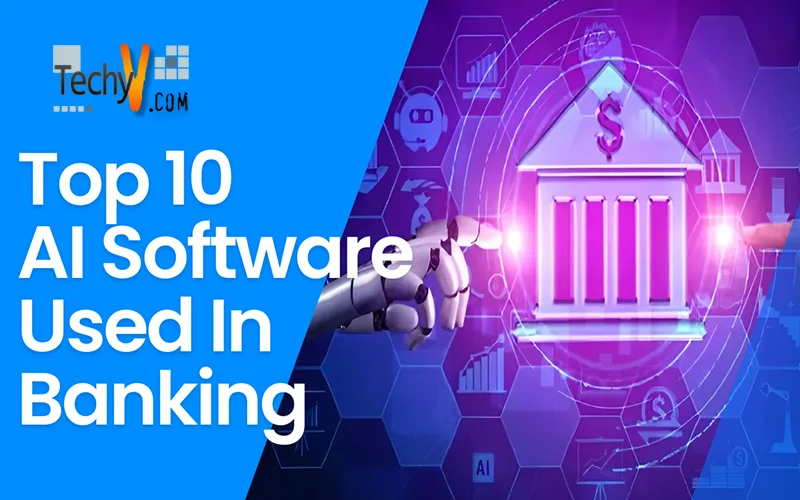In recent years, AI has affected every sector and has made it easier for them to perform efficiently. Banking Sector is the most impacted sector by AI because it has disrupted the traditional banking system which, involves physical transactions. AI has enabled banks to work faster and more efficiently with the help of chatbots, robo-advisors, trading platforms, and others. Moreover, trends like neo-banking, Biometric authorization, regur tech, wealth tech, and others have threatened the traditional banking sector. Investments in 5G technology, 24×7 voice assistants, and machine learning models for predicting future financial scenarios are further boosting the growth of AI in the banking sector.
1. AI Chatbots
AI-enabled banking systems have made customer service very easy due to the availability of AI chatbots. The chatbots respond to queries of customers quickly and provide personalized experiences like FAQs. AI has made it possible for the banking sector to attract new customers, and improve the quality of services for customers. Moreover, the emergence of robo-advisors provides various benefits to customers like, advice on risk management, wealth management, investment management, and monitoring customer’s financial habits.

2. Know Your Customer
AI-enabled KYC has made the documentation process faster and cheaper. With the help of natural language processing (NLP), documentation process like analysis and interpretation of data has made it easy for banks to track customer data. Further, KYC forms are available easily on mobile applications and websites, making it accessible for everyone.

3. Portfolio Management
With the help of AI, portfolio management of clients has become easy. Further, banks are now using machine learning models to track and access customer data. Also, a business person can remit or transfer money through mobile banking or websites. Further, banks can track any fraudulent payments and monitor the credit and debit activities of the customer.

4. AI In Capital Market
With the development in technology, security concerns hold a prominent place in the minds of customers. Similarly, trading and investing in the capital market requires secure transaction on the part of business people. AI has enabled secure trading and investing through mobile applications and websites by linking it to the customer’s bank accounts. It further provides live details of the stock market like, fluctuations in the prices of stocks.

5. Risk Management
Since banks deal with millions of customers, they need to manage risks associated with transactions. AI has made risk management easy with smart-banking features that help in assessing the financial status of the customer, document verification of loans, and monitoring customers’ transactions. Further, banks use machine learning models to maintain extensive data of customers.

6. Payment Fraud Detection
Since, banks are involved in hundreds of transactions daily, and hence, they need to keep track of fraudulent payments in their systems, which may affect them in the future. AI enables banks to detect fraudulent transactions and prevent them from future risks. It highlights any fraudulent transaction taking place in the system, monitoring the financial habits of customers, or seeing any unusual transactions in the system.

7. Regulatory Compliance
Financial institutions make it mandatory for banks to follow regulatory compliance for the effective functioning of the monetary system. It involves the non-disclosure of confidential data, protecting customers’ accounts from future risks, running fraud analysis, and updating the web pages of the bank’s website in compliance with the regulatory norms.

8. Maintaining And Recording Data
AI-enabled storage system helps banks to maintain and record data efficiently. Further, it has eliminated the need for physical storage and hence, saved storage space and extra costs. With the help of AI, banks can record, maintain, and track customers’ data with ease. Further, banks can convert physical documents into digital format using the OCR method.

9. AI-enabled Investment Banking
AI has affected every sector and finance is the most positively affected by it. With AI, investment banking companies can earn large profits. AI-enabled Investment banking makes use of agent-based modeling that helps to analyze market scenarios. Other features include stress run tests, market feasibility tests, and high or low-probability tests.

10. AI-enabled Lending
Lending and borrowing have more uncomplicated and accessible with the emergence of AI in the financial sector. AI benefits lenders and borrowers, as lenders can get better returns through online mobile applications and websites, and borrowers can benefit by searching for lenders available at a single place with minimal cost and less documentation. Banks, with the help of AI, can assess the financial status of the borrowers, track their financial habits, analyze their credit scores, and provide reports to the lenders. AI has drastically changed the traditional banking sector. With the development in technology, banks need to keep themselves aligned with the new trends and cater to consumer demands. Also, new AI startups and companies provide digital financial solutions threaten the working of traditional banking systems.



















